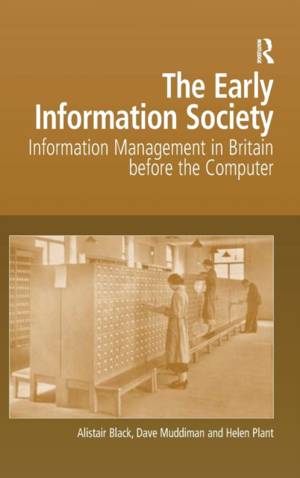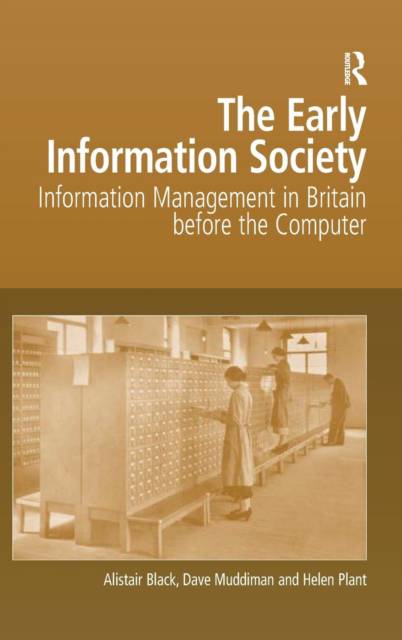
Door een staking bij bpost kan je online bestelling op dit moment iets langer onderweg zijn dan voorzien. Dringend iets nodig? Onze winkels ontvangen jou met open armen!
- Afhalen na 1 uur in een winkel met voorraad
- Gratis thuislevering in België vanaf € 30
- Ruim aanbod met 7 miljoen producten
Door een staking bij bpost kan je online bestelling op dit moment iets langer onderweg zijn dan voorzien. Dringend iets nodig? Onze winkels ontvangen jou met open armen!
- Afhalen na 1 uur in een winkel met voorraad
- Gratis thuislevering in België vanaf € 30
- Ruim aanbod met 7 miljoen producten
Zoeken
The Early Information Society
Information Management in Britain before the Computer
Alistair Black, Dave Muddiman
Hardcover | Engels
€ 274,95
+ 549 punten
Uitvoering
Omschrijving
Whether termed the 'network society', the 'knowledge society' or the 'information society', it is widely accepted that a new age has dawned, unveiled by powerful computer and communication technologies. Yet for millennia humans have been recording knowledge and culture, engaging in the dissemination and preservation of information. In `The Early Information Society', the authors argue for an earlier incarnation of the information age, focusing upon the period 1900-1960. In support of this they examine the history and traditions in Britain of two separate but related information-rich occupations - information management and information science - repositioning their origins before the age of the computer and identifying the forces driving their early development. `The Early Information Society' offers an historical account which questions the novelty of the current information society. It will be essential reading for students, researchers and practitioners in the library and information science field, and for sociologists and historians interested in the information society.
Specificaties
Betrokkenen
- Auteur(s):
- Uitgeverij:
Inhoud
- Aantal bladzijden:
- 302
- Taal:
- Engels
Eigenschappen
- Productcode (EAN):
- 9780754642794
- Verschijningsdatum:
- 28/03/2007
- Uitvoering:
- Hardcover
- Formaat:
- Genaaid
- Afmetingen:
- 156 mm x 234 mm
- Gewicht:
- 603 g

Alleen bij Standaard Boekhandel
+ 549 punten op je klantenkaart van Standaard Boekhandel
Beoordelingen
We publiceren alleen reviews die voldoen aan de voorwaarden voor reviews. Bekijk onze voorwaarden voor reviews.











